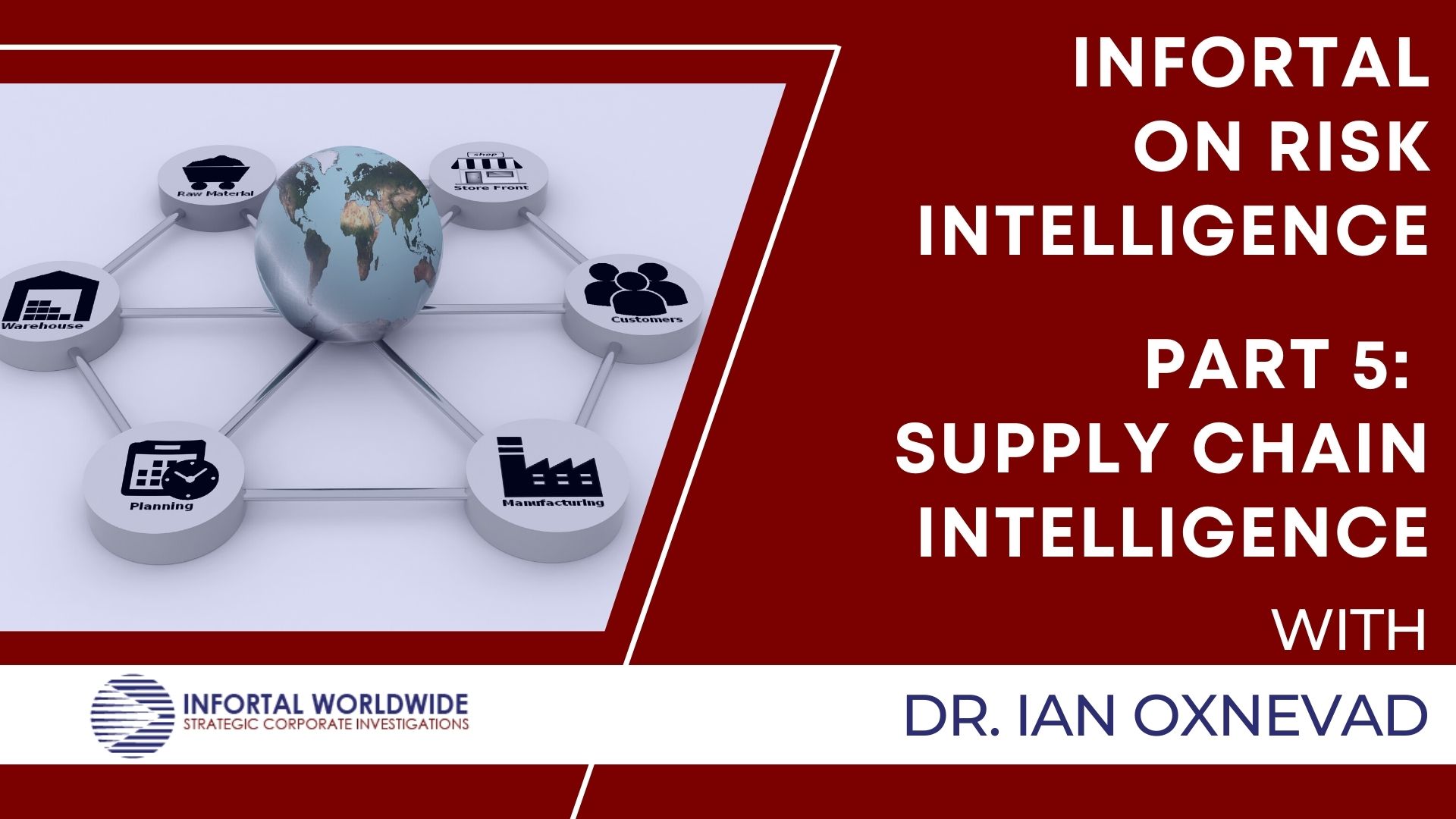I recently had the opportunity to visit with Dr. Ian Oxnevad, Director of Geopolitical Risk intelligence at Infortal Worldwide. This visit was for a podcast series, sponsored by Infortal Worldwide entitled Global Risk Review. Dr. Oxnevad is a seasoned expert in geopolitical risk intelligence, with a PhD in political science and a master’s degree in National Security Studies. His expertise, particularly in the Middle East and Africa region, has led him to identify numerous opportunities for US businesses, especially in the high-tech sector and water technology, following the Abraham Accords. Dr. Oxnevad acknowledges the potential risks, such as political tensions, inflationary pressures and threats to the dollar’s dominance. His insights are shaped by his extensive academic background and his role as the Director of Geopolitical Risk Intelligence for Infortal Worldwide.
Over this five-part blog post series we looked at the risk profile for US Companies doing business in the following geographic regions, the Middle East, Latin America, Russia and Ukraine, Africa and the Asia Pacific region. Over this five-part blog post series, we will review Dr. Oxnevad’s views in each one of these regions. We begin in this Part 1 by reviewing the business opportunities and risks in the Middle East.
The Middle East has undergone significant changes in recent years, particularly with the signing of the Abraham Accords in 2020. These accords have opened new opportunities for US businesses in the region, particularly in the United Arab Emirates (UAE) and Israel. However, along with these opportunities come certain risks and challenges that need to be carefully considered.
One of the key areas where US businesses can benefit from the Abraham Accords is in the high-tech sector. Both the UAE and Israel have highly advanced economies and a strong focus on technology. The normalization of relations between these countries has created opportunities for bilateral investments and partnerships. US companies looking to invest in Israel or the Gulf states can now do so with greater ease, as the need to keep economic relations separate has diminished.
Another sector that presents opportunities for US businesses is water technology. The UAE, in particular, heavily invests in Africa, where there is a high demand for water systems. Previously, geopolitical issues may have hindered collaboration between Emirati investors and US companies in providing water technology solutions in Africa. However, with the Abraham Accords, these hurdles have been removed, allowing for greater regional integration and technological cooperation.
While the Abraham Accords have opened up new avenues for US businesses, it is important to consider the potential risks and challenges that come with operating in the Middle East. One such risk is the potential for export sanctions violations, particularly in relation to Iran. US companies operating in Saudi Arabia, for example, need to be aware of the risks associated with conducting business with partners or buyers who may have ties to Iran. Thorough due diligence and risk assessments are crucial in mitigating these risks.
Additionally, the normalization of ties between Saudi Arabia and Iran, facilitated by China’s Belt and Road initiative, has implications for energy costs and potential inflationary pressures. If oil sales start getting denominated in currencies other than the US dollar, it could lead to higher energy costs and inflationary pressures. This could have a significant impact on US businesses operating in the region, as it may affect supply chains and purchasing power.
It is important for US businesses to stay informed about geopolitical developments and the potential impact on business opportunities and risks in the Middle East. Geopolitical risk intelligence and screening of partners and suppliers are essential in navigating the complex landscape of the region.
In conclusion, the Abraham Accords have created new opportunities for US businesses in the Middle East, particularly in the UAE and Israel. The high-tech sector and water technology are key areas where US companies can benefit from increased regional integration. However, it is crucial to consider the risks associated with export sanctions and potential inflationary pressures. Thorough due diligence, risk assessments, and staying informed about geopolitical developments are essential for US businesses looking to capitalize on the opportunities in the Middle East post-Abraham Accords.
I hope you will join us tomorrow when we explore Geopolitical Risks and Business Opportunities in Latin America.
You can check Dr. Oxnevad in the full five-part Riskology by Infortal podcast series here.




